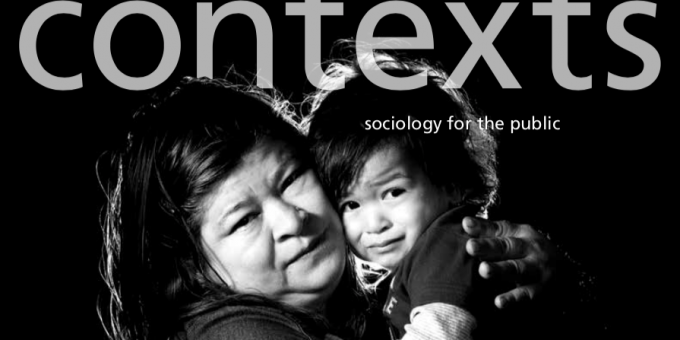
Spring 2019: Migration Table of Contents
The future will need people who understand that migration is normal, not criminal. To get there, we will need vision and heart, but also knowledge. In this issue, some of the nation’s leading scholars explain how dysfunctional and cruel our current migration system is and propose ways to get to a much better place. Click here to read all content currently available on contexts.org, or here to read the issue in full, for free, from June 4-July4, 2019.
up front
letter from the editors, rashawn ray and fabio rojas
in brief: decolonizing sociology, selling broken windows, and yimby politics. new research from the journals.
q&a: intellectual integrity and the relevance of sociology to public policy. margarita mooney interviews robert p. george.
features
the economics of migration, jonathan portes. economists broadly agree: the political backlash against immigration in many countries is not economically ration. the evidence strongly supports immigration as, overall, a clear benefit to destination countries.
what happens when the u.s. stops taking in refugees? molly fee and rawan arar. most of the world’s 25.4 million refugees have been displaced for five or more years. a sharp curtailment in refugee arrivals to the u.s., then, isn’t just a national decision, but a global disruption.
trouble in tech paradise, pallavi banerjee and lina rincon. the structures of the tech industry, with its dependence on highly skilled immigrant workers, and the h-1b visa, with its dependence on sponsoring companies, bind tech workers in a cycle of legal violence.
life after deportation, tanya golash-boza and yajaira ceciliano-navarro. deportees’ reintegration is shaped by the contexts of reception in their countries of origin and the strength of their ties to the u.s. for some, the deprivation and isolation of deportation is akin to a death sentence.
examining americans’ stereotypes about illegality, rene d. flores and ariela schachter. people rely on powerful stereotypes to classify others as “illegal,” demonstrating that, like race and gender, documentation status may be as much a social construction as a legal one.
raising global children across the pacific, pei-chia lan. different opportunity structures and different perceptions of risk within the global economy shape the ways parents of similar class and ethnic backgrounds strive to prepare their children for the future.
departments4
in pictures
jade olivo and the art of migration, fabio rojas. jade olivo/puppies puppies creates deeply biographical work, rooted in hard-earned experience, to mark her movements through space, health, and identity.
books
when a school isn’t just a school, nadirah farah foley on ghosts in the schoolyard.
my journey in public sociology, nancy wang yuen on going public.
culture
afrofuturism and black panther, myron t. strong and k. sean chaplin on the liberatory potential of afrofuturism.
black women running, tiffany g. chenault on claiming space and building community by hitting the road.
trends
black artists and elite taste culture, patricia a. banks on racial and gender diversity in elite art markets.
racially profiling people and places, lance hannon and aaron siegel on profiling and policing physical space.
living while black, junia howell, marie skoczylas, and shatae’ devaughn on the long-standing practice of policing black people for mundane actions.
policy brief
stemming the exploitation of immigrant farm labor, andrew r. smolski on leveraging labor and immigration policy to protect h-2a farm workers and provide a path to citizenship.
one thing i know
helping migrants takes imagination, johann daniel harnoss on one group’s strategy to facilitate global migration, on person at a time.
